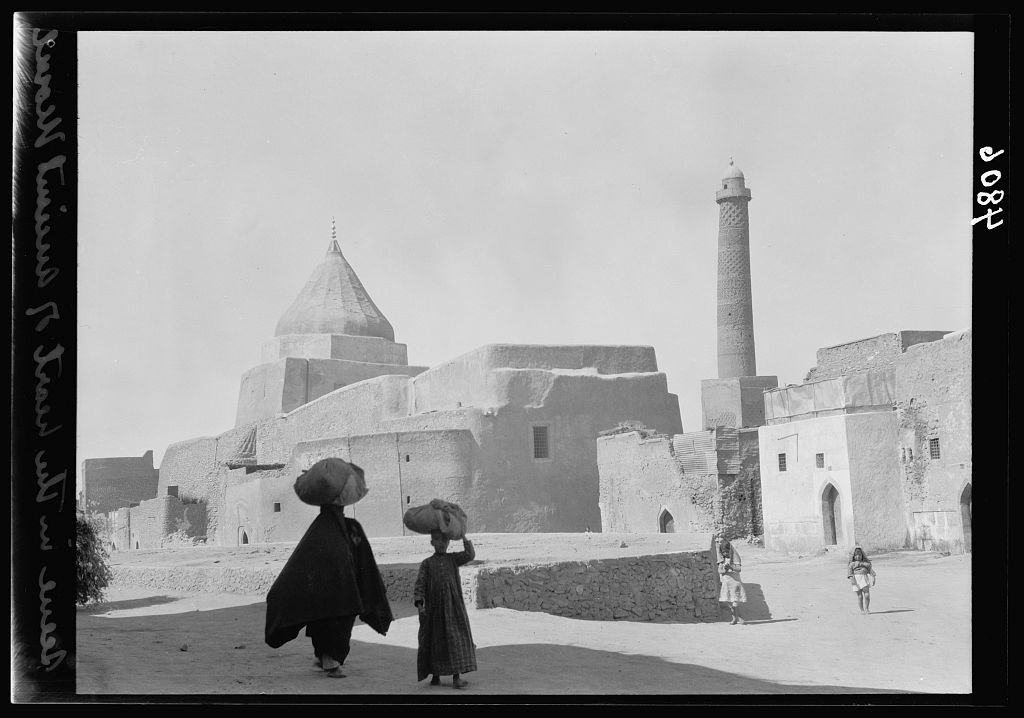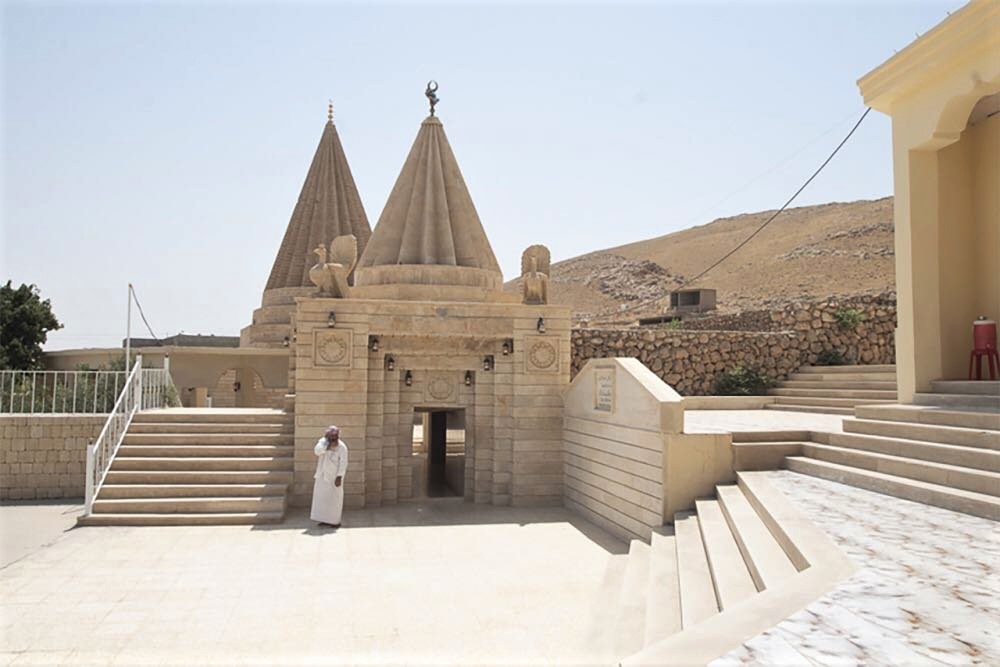

Ayad Alhussein, 13 years old at the time, was reunited last November with family in Winnipeg. The boy had escaped five years of captivity by the Islamic State after he and his family were captured in Iraq. Three more years followed before he was granted entry to Canada.
The family is Yazidi, a religious minority. The boy’s sisters in Winnipeg had thought that he was dead, and their reunion was bittersweet, CBC reported, as they didn’t know if their parents or four other siblings were alive.
“We are in the process of integrating him into the community,” Jamileh Naso, president of the Canadian Yazidi Association, told JNS in March. “Given the mental and psychological trauma he has been through, he is doing OK.”
The role that Canadian Jews have played at the forefront of saving Yazidis fleeing Iraq and helping them reunite with family in Canada remains relatively unknown. In March 2015, Winnipeg Jews launched “Operation Ezra” to raise awareness about Yazidi suffering in the Middle East, and to sponsor a Yazidi refugee family coming to Winnipeg, according to the Jewish Federation of Winnipeg website.
Michel Aziza, who began chairing the operation from its get-go, told JNS that most people knew nothing about Yazidi culture or people until the August 2014 Sinjar Tragedy, when the Islamic State took over the region, killing thousands of Yazidi men and taking the women captive.

“Operation Ezra” is named after “Operation Ezra and Nehemiah” which brought Jews fleeing Iraq in the 1950s, to Israel.
There used to be about 700,000 Yazidis living in Iraq, with smaller pockets in Syria and Turkey. Today, they are dispersed globally, with many living in the West.
‘We knocked on many doors’
Jamileh Naso’s sister Nafiya, who moved to Winnipeg as a child in the 1990s, reached out to fellow Winnipeg Jews asking for help in August 2014. At the time, Nafiya told JNS, the family was receiving calls from family, friends and community members in Iraq begging for assistance.
“There were around 180 Yazidis in Winnipeg at the time, and we decided that we can’t sit still and had to take action,” she said. “So we knocked on many doors and found the Jewish community.”
Soon, four Jews were phone banking, trying to reach organizations seeking their help raising money to sponsor a Yazidi refugee family. Within a few weeks, they raised twice the amount they needed.
“Jews have been persecuted for centuries, and they showed a lot of solidarity and compassion as they were able to relate to us,” said Jamileh.

By 2018, “Operation Ezra” encompassed some 40 entities, including synagogues, churches, schools, social-service agencies and businesses. Most of those involved were volunteers.
The name came from Belle Jarniewski, the president of the Manitoba Multifaith Council told JNS. It combines the Hebrew name Ezra, which means help, and reference to Operation Ezra and Nehemiah, in which more than 120,000 Iraqi Jews were airlifted to Israel between 1951 and 1952.
“Jews and Yazidis were once neighbors in Iraq, and 60 years after Jews left, the Yazidis also had to flee due to persecution,” said Aziza.
Yazidis were persecuted long before ISIS came along, according to Jamileh Naso. “Being caught in the tug of war between Sunnis, Shias and other groups, we never feel safe in our homeland,” she said.
After raising more than $1 million, the operation was able to sponsor more Yazidis and bring them to Canada. With only so much that the private sector can do, there was a need to lobby the government, according to Aziza.

Yazidis are a predominantly Kurdish-speaking ethno-religious group whose traditional homeland in the Sinjar Mountains is rumored to be the final resting place of Noah’s Ark. Religious extremists consider their beliefs—rooted in ancient, Indo-Iranian ethnic religion—to be akin to devil worship.
Most Yazidi practices are passed down through oral tradition, and they don’t accept converts or allow intermarriage. They pray in homes or rented spaces in Canada. “As the community grows, we may build our own place of worship one day,” Jamileh said.
About 500 Yazidis live in Winnipeg, of an estimated 2,000 in Canada, many of whom arrived thanks to “Operation Ezra,” according to Jamileh. “There are still many Yazidis who have not yet been united with their loved ones,” she said, “and we will continue to do what we can to help others to reunite.”
{Written by Avi Kumar and reposted from JNS}






![Why You Shouldn’t Be Afraid of G-d – Soul Talk [audio]](https://www.jewishpress.com/wp-content/uploads/2025/03/light-4681014_640-218x150.jpg)
![Modesty & Matzah – Pull Up a Chair [audio]](https://www.jewishpress.com/wp-content/uploads/2025/03/matzah-1566456_640-218x150.jpg)















